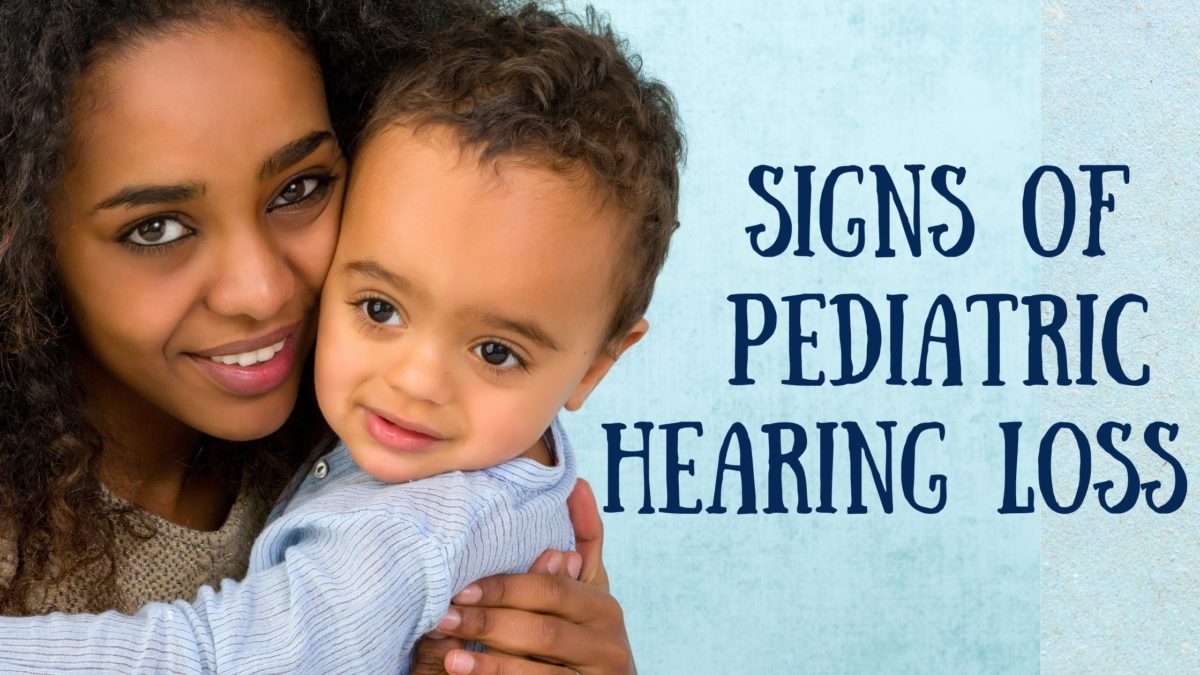Hearing loss is often thought of in regard to adults, but the truth is that hearing issues can occur at any age. In fact, it is especially important to be aware of the signs of hearing loss in infants and young children. Hearing is a critical component in learning and if hearing impairments go undetected and unaddressed, it can harm the child’s ability to meet developmental benchmarks.
Pediatric hearing loss can be difficult to detect, in part because infants and small children don’t have the language or context to express what is happening. Newborns are screened upon delivery for congenital hearing loss. Routine pediatric checkups should also include a hearing test to screen for possible impairment at ages 4 through 6, as well as at 8 and 10. Additionally, noticing the signs of a hearing issue, such as an ear infection, can make the difference in seeking treatment before any permanent damage to a child’s hearing can occur.
What May Indicate an Issue
Even when your child can’t tell you they have a hearing issue, their behavior may tell the story for them. Children with hearing problems will often demonstrate developmental delays. Issues with the ear itself, such as an infection, may be marked by unusual attention or changes in mood.
Some signs of hearing loss in the very young are the same as in adults. Children who have trouble recognizing their name or when they are being addressed may be living with hearing impairment. Children with hearing loss will often want sound volume turned up on television or music, sometimes unusually loud.
Hearing loss often comes across as inattentiveness in young children. Problems understanding or following directions, unresponsiveness and listlessness can all have a hearing problem at their root. Babies with hearing loss will not respond to sudden noises or speech and will not be phased or upset by loud noises. Part of assessing developmental concerns should be looking at hearing ability, as a hearing impairment can severely restrict learning if it is not properly treated and accommodated.
Ear infections are a very common cause of hearing problems in young children, in part because the developing anatomy of their auditory system is more vulnerable to irritation and infection. The initial stages of ear infection are often painless and may only be noticeable as a diminished hearing acuity in the child. Children with ear infections may scratch or pick at their ears frequently. If an infection has become painful, the child may be moody, irritable or visibly in pain.
Possible Causes
There are a number of factors that can affect a child’s hearing. Among the most common causes of childhood hearing loss are congenital hearing issues and frequent ear infections. Other causes are also possible.
Congenital hearing loss is fairly common, affecting roughly 1 in every 500 babies born. Newborn hearing screenings are widely available across the country with the goal of recognizing and treating hearing loss swiftly so it can be better accommodated for healthy childhood development. Roughly half of all congenital hearing loss has a genetic cause. Other incidences of hearing loss in newborns may be caused by in utero exposure to infection or disease. Premature babies also run higher risk of hearing loss.
Ear infections are the common term for otitis media. Otitis media is marked by a buildup of pressure and fluid against the eardrum causing painful or itchy feelings in the ear. In general, ear infections, especially when caught early, can be easily treated with antibiotics and don’t result in permanent hearing damage. Children, however, are more inclined to frequent and chronic ear infection and if undetected or unaddressed this can result in hearing loss. By the age of 3, around three-fourths of all children have had an ear infection.
Other problems can cause hearing loss in young children and babies. Injury to the head or neck can include permanent hearing damage. Certain medications are known to be “ototoxic” and can result in permanent hearing loss as a side effect. Many serious childhood diseases such as measles, meningitis and influenza can also result in hearing loss. The auditory system of young children can also be permanently damaged by loud noise exposure, resulting in noise-induced hearing loss.

